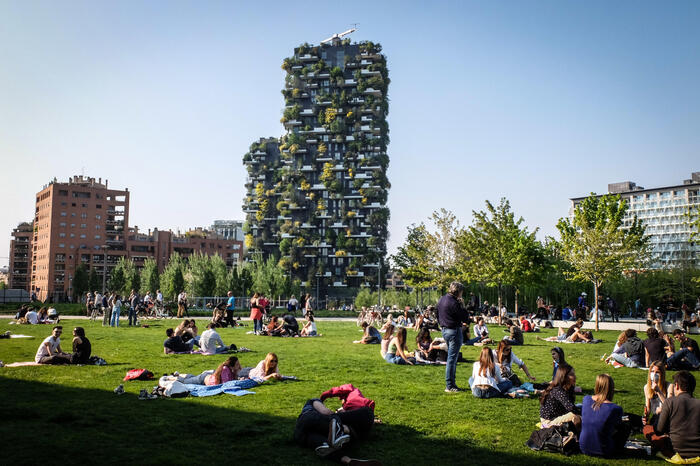The ruling party has celebrated the twentieth anniversary of the assumption of the first Kirchner administration. Those were times in which the dramatic adjustment imposed by the exit from convertibility, and the favorable winds of the terms of trade that favored our agricultural exports began to outline the end of the crisis and the expansion of the product with twin surpluses.
There was a great opportunity to use part of the pesos of the fiscal surplus to buy part of the dollars of the trade surplus and begin to consolidate a countercyclical fund and, on that basis, a process of development of exportable value added.
Relative prices had been readjusted to a ratio of 3 pesos to the dollar, but the prices of goods and regulated tariffs, including those of the energy basket, were lagging behind. They had to start readjusting.
With the inheritance of an energy system that had been capitalized and had reserves, the initial tariff arrears were absorbed by the producers and operators of the sector diminishing investments (which with the industrial reorganization of the nineties were mostly private).
Until 2003, economic energy subsidies (due to the gradual divorce of prices and tariffs with their economic costs) had no budgetary impact. Already in 2004 it began to become clear that there would be no countercyclical bottom (the twin surpluses would be liquefied as public spending increased), nor would there be a recomposition of relative energy prices. Free stone to the populist festival while it lasted.
Some will remember the positional "freeze" that then-Vice President Daniel Scioli had for alluding to a possible tariff adjustment. That could no longer be talked about. In 2004 we started with energy subsidies with budgetary impact (825 million current dollars). These subsidies climbed to 20,829 million in 2014, with the second administration of Cristina Fernández de Kirchner, representing 3.7% of GDP.
The Macri administration began the traumatic process of recomposing energy prices and rates and in 2019 subsidies fell to 4,931 million dollars (1.11% GDP). But the freezes and subsidies returned in the Administration of Alberto Fernández reaching in 2022 the 13,004 million dollars (2.08% GDP).
In all these years, starting in 2004, energy subsidies totaled the extravagant figure of 166,672 million current dollars (92% current consumption subsidies).
The intervention in prices and tariffs in the populist logic obeys three basic objectives: anti-inflationary anchor, redistribution of income, reactivation of consumption. In the short term, the freeze may generate some price containment (repressed inflation) and some redistributive and reactivating effect, but in the medium and long term the consequences of the populist festival are disastrous.
Interventions in the prices and tariffs of public services (similar to what happens with the exchange rate delay) begin by camouflaging the diagnosis and debate on the macroeconomic causes of inflation, and lead to generalized subsidies that benefit the rich more than the poor.
On the other hand, the reactivating effects on the aggregate are sterilized by falling investment and rising inflation (subsidies are financed with taxes, debt or, finally, inflationary issuance).
As price signals encourage demand and discourage local production, the freezes have as a counterpart growing deficits in the energy trade balance with an impact on the external accounts. Argentina had achieved energy self-sufficiency (balanced sectoral balance) in 1989.
During the 90s it had an energy surplus that lasted in the first decade of the new century thanks to the exceptional prices of crude oil in the world, from which we were also divorced.
But in 2006 we had a surplus of 6,081 million dollars, which went down until it became a deficit in 2011, a deficit that climbed to 6,902 million in 2013. Again, the last administration managed to reverse the trend leaving an almost balanced balance.
In 2022, with the recidivism in failed policies, the external accounts of the sector accused a red of 4,471 million dollars. Last but not least, the energy crisis deteriorated the quality of service (power outages) and is responsible for the shortage of products (diesel in crops, gas in winter) when they are most needed.
The energy populism of these two decades turned energy into a serious problem for the economy. But the other burdensome legacy of recidivism is its cultural impact.
The populist idea of assimilating energy goods and services to public goods, which in turn are assumed to be "free" when they are not (such as education or public health), and the idea of believing that subsidies are a "God pays" (a gift from the government of the day) have taken root in the social collective and are functional to the short-term political opportunism of freezing tariffs and increasing subsidies (although it is necessary to issue to finance them).
This traps a capital-intensive sector in the short term and complicates the return to normality. Populist fallacies have penetrated deep into society and the solution to the energy problem will have to deal with technical responses and cultural changes.
Daniel Montamat is former Secretary of Energy and former President of YPF






